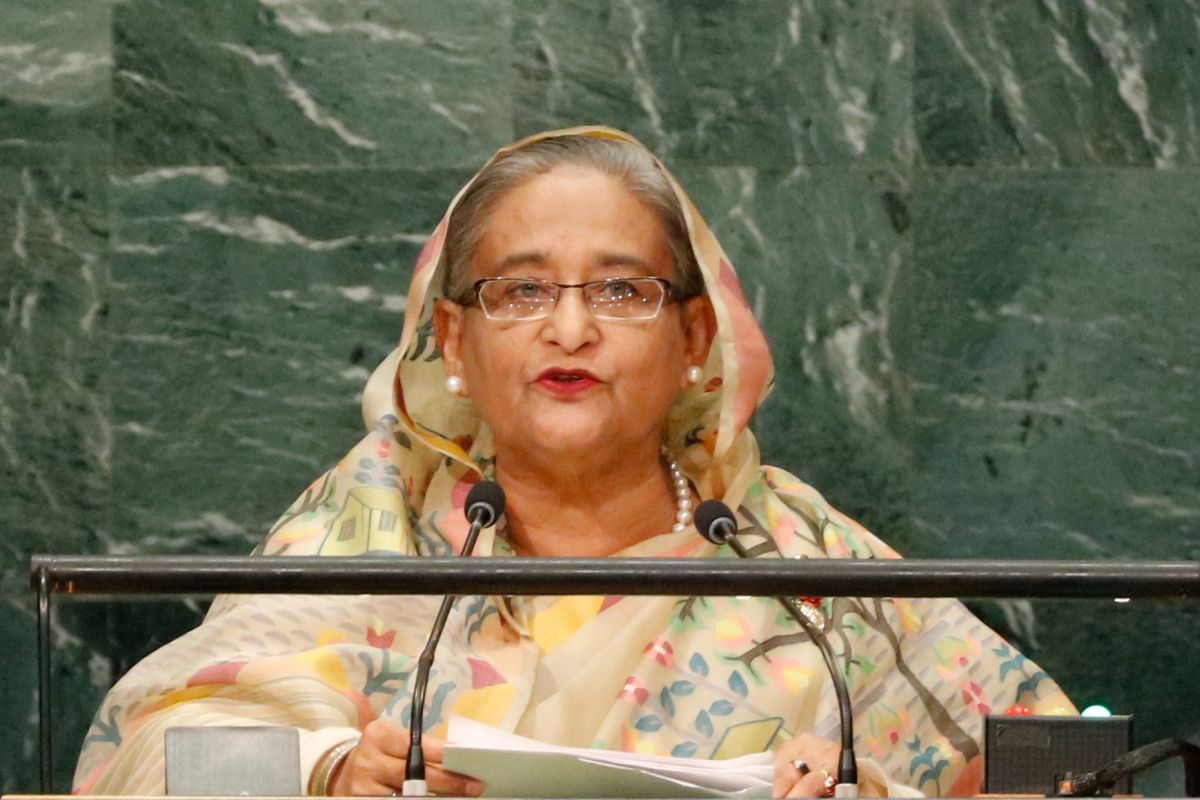CAA Implementation in Assam: Only Two Granted Citizenship Amid Ongoing Border Challenges
Assam government has granted Indian citizenship under the Citizenship Amendment Act to two individuals out of the 39 applications so far.
Her contention that the Citizenship Amendment Act and the National Register of Citizens are “internal matters” of India is well taken, indeed a reflection of the Modi-Shah praxis.

Bangladesh Prime Minister Sheikh Hasina. (File Photo: IANS)
There is an unmistakable degree of doublethink in the Bangladesh Prime Minister, Begum Hasina’s presentation in Abu Dhabi, quite obviously addressed to the gallery of non-resident Bangladeshis in the Gulf. She is not belligerent as her ebullient counterpart in the parent country. Her contention that the Citizenship Amendment Act and the National Register of Citizens are “internal matters” of India is well taken, indeed a reflection of the Modi-Shah praxis.
Not so, however, her supplementary that the Act was “not necessary”, in a sense echoing the perception of the occasionally feisty Opposition on this side of the border. “We don’t understand why the Indian government did it. It was not necessary,” she said, referring to India’s new citizenship law. In the context of this statement, her essay to effect a deft balancing act may turn out to be an abortive endeavour.
Advertisement
Her comments came weeks after the Bangladesh Foreign Minister, AK Abdul Momen, cancelled his visit to India over what he called the “uncertainty” in the country over an issue that is likely to affect its neighbours. Overall, her performance in Abu Dhabi will scarcely impress the political class in India despite her acknowledgment that the issue is an “internal matter”. An estimated 10.7 per cent of the 161 million population in Bangladesh are Hindus and 0.6 per cent Buddhists.
Advertisement
It shall not be easy to concur with the Bangladesh Prime Minister’s denial of migration to India because of religious persecution. In point of fact, the persecution of minorities ~ Hindus in the main ~ has been well-documented ever since the emergence of the country in December 1971. In parallel, the country bears witness to the activities of the Islamic fundamentalist fringe, one that has almost invariably targeted the minorities. Furthermore, it isn’t only the persecuted minorities who have illegally crossed over.
The “quiet influx” ~ this newspaper’s coinage in 1979 ~ has over exactly four decades led to a demographic change, most particularly in the border districts, primarily in West Bengal and Assam. The latter has been in ferment over the past few months. Begum Hasina has conceded that “No, there is no reverse migration from India”, but regretfully she has couched her statement with the contention that “within India, people are facing many problems”. So too, one is inclined to add, is the case in Bangladesh; and its Prime Minister could well have avoided any reference to what she calls “many problems” in India.
That cavil chimes oddly with her contention that the India-Bangladesh equation is now “at its best”. Her presentation in the UAE capital is bound to cause a flutter in the roost in India and also of course among minorities in the neighbouring countries. She has held forth in a third country barely two months before Narendra Modi, Pranab Mukherjee and Sonia Gandhi are scheduled to visit Bangladesh to attend the birth centenaray celebration of the “Father of the Nation” ~ Sheikh Mujibur Rahman. Sad to reflect, his daughter has emitted conflicting signals close to 50 years after freedom was won.
Advertisement